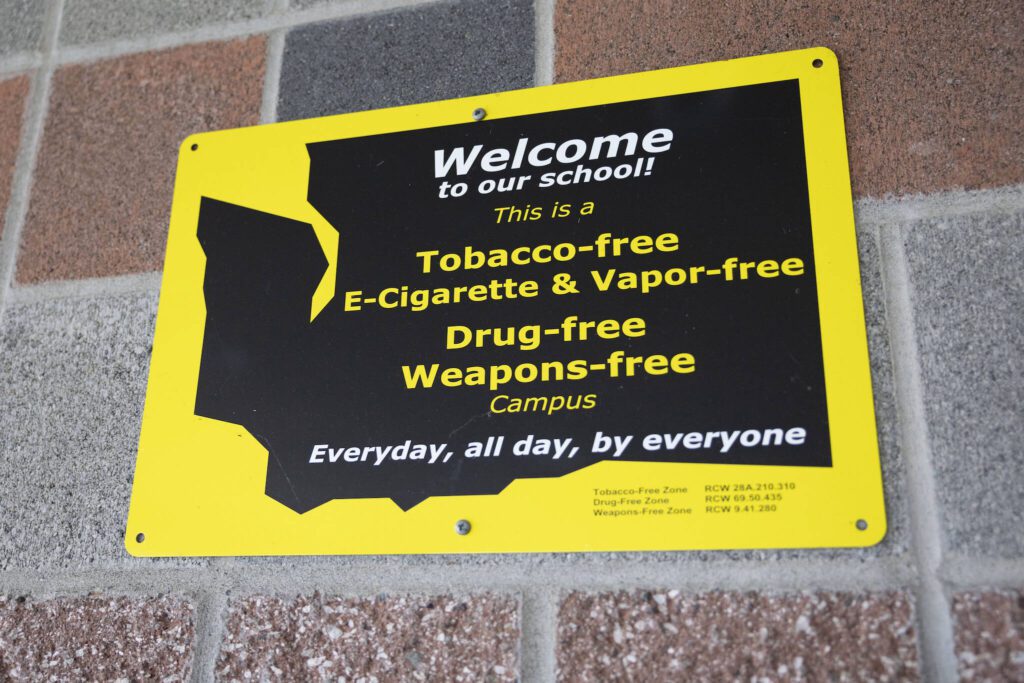By Emma Schwichtenberg, contributed to The Daily Herald
MONROE — Not all Snohomish County schools have access to the same drug and alcohol education, but new legislation from Olympia is set to change that.
Each school district has different forms of drug prevention programs largely depending on funding from state grants.
“There is no universal strategy across our county,” said Amanda Franke, a behavioral health supervisor for Snohomish County.
Franke pointed to Monroe as a school district doing a good job educating students on substance abuse. The Monroe Community Coalition has been awarded nearly $5 million for behavioral health education in its schools and community.
“We were able to put funding in the communities that had the highest rates of youth substance abuse,” said Joseph Neigel, director of prevention services for Monroe and coordinator for the coalition.
The school district provides free drug and alcohol treatment services to students at Hidden River Middle School, Park Place Middle School, Monroe High School and Leaders in Learning High School.
“We’re shifting very slowly from this mentality of ‘Don’t do drugs’ to a more harm-reduction approach,” Franke said. “Research shows that the DARE program not only didn’t prevent kids from using but that essentially gave them the tools and information to use, so it caused more harm than good.”
Instead, Franke said, the curriculum could ask: “How are you going to use safely?”
From 2016 to 2022, the number of teens between 14 and 18 who died in the state from opioid-related causes nearly tripled, the state Department of Health reported. The state largely attributes the rise to the increase of synthetic opioids like fentanyl.
“What teachers want right now is a curriculum,” said U.S. Rep. Kim Schrier, a Democrat who represents Washington’s 8th Congressional District. “Teachers want standardized talking points.”
Lawmakers in Olympia recently answered that call. House Bill 1956 requires educators to include substance-use prevention curriculum in health and physical education classes for middle and high schools, by Dec. 1, 2025.
And House Bill 2112 requires colleges to provide opioid education “to all students” via higher education institutions’ websites. It also requires naloxone strips to be available on campus “in various accessible locations such as student wellness centers, student union buildings, and student housing.”
Meanwhile, Senate Bill 5804, another measure lawmakers passed, mandates stocking at least one set of opioid overdose reversal medication on all public school campuses in the state. Previously, only schools with 2,000 or more students were required to carry at least one set of overdose reversal medication on campus. The medication will be kept in either the nurse’s office or a health care clinic on school property and can only be administered by a health care professional or trained staff member.
The state’s Community Prevention and Wellness Initiative is based on an effort to prevent substance misuse in the state’s 39 “high-need communities” — where the substance abuse rate is high.
Monroe was one of the original three Community Prevention and Wellness Initiative locations in Snohomish County. The other two were Darrington and Marysville. Each of those three cities has a community coalition, typically funded through the school district.
“Our data shows that Monroe students’ substance use now falls within or below what’s normal for the state,” Neigel said. “Now student alcohol use, marijuana use, vaping, depression, anxiety and suicidality are at or near 20-year lows.”
In Monroe, the curriculum differs based on age group. Starting in kindergarten and ending in the 12th grade, programs teach students the skills needed to resist substance abuse and aim to teach boundaries.
“When you’re working with children, you need to teach skills that teach self-control,” Neigel said. “Other necessary skills are emotional awareness, the ability to communicate and to solve problems, early prevention and substance abuse prevention skills.”
To understand the student’s strengths and vulnerabilities when it comes to substance education, Monroe’s coalition uses the Washington State Healthy Youth Survey administered every two years to students statewide.
“The amount of new conversations I’m having at town halls or community events, even emails and outreach from parents, has gone up in the last three, four years,” Snohomish County Council member Jared Mead said. “With the crisis escalating and getting exponentially worse, you see that worry in parents, now that it’s seeping into younger and younger populations.”
The opioid crisis was the county’s “No. 1 priority” in the Legislature, Mead said in November ahead of the state legislative session.
Two-thirds of teen overdose deaths nationally happened at home and 60.4% of these deaths occurred with one or more bystanders present, according to the CDC in a study conducted from July 2019 to December 2021.
“We’re doing a great job with harm reduction techniques,” Neigel said. “We teach if you’re using, here’s how you can survive, but the message needs to change, especially if individuals can’t revive themselves.”
There is a false sense of safety, Neigel said, among folks who carry naloxone.
“In Snohomish County, over the past 12 months there have been six youth overdose deaths,” Neigel said. “Of those six, all had fentanyl in their system, but nobody had just fentanyl only in their system. And of those six, five were carrying naloxone so they could revive themselves.”
Mead suggests visiting the Snohomish County Health Department’s website for further resources.
The Health Education Toolkit can be found online at snohd.org.
Emma Schwichtenberg is a journalism student at the University of Washington. Twitter: @emaroswitz.
Talk to us
> Give us your news tips.
> Send us a letter to the editor.
> More Herald contact information.


























